The Cecil Sharp Collection
Rediscovering the Folk Music of Tewkesbury
to Expand
Cecil James Sharp (1859-1924) was an English musician, who awakened modern interest in folk song and dance.[1] What is not recorded in our national history is the contribution to his work made by two people who lived in Tewkesbury.
Cecil Sharp was born in 1859 at Denmark Hill in south London. He studied at Clare College Cambridge before departing for Australia in 1882 where he stayed for nearly 10 years practising law and teaching music. In 1893, after returning to England, he was engaged as a music teacher by Ludgrove School in North London where he worked for the next seven years. On Boxing Day of 1899 Cecil Sharp was staying with family in Oxford where he saw the Headington Quarry Morris Men performing their traditional dances. Fascinated by the music he noted down the tunes from their musician William Kimber. With this single event began his life-long interest in collecting and promoting the traditional songs and dances of England.
By 1901 Sharp had joined the Folk Song Society and, in 1903, began collecting folk songs in Somerset. From this time, until his death in 1924, Cecil Sharp was to become the foremost and most prolific collector of folk music and dance in the country. He noted down a total of 4977 tunes, including nearly 3000 songs from England and over 1500 on his trips to the Appalachian Mountains in America. His publications fostered a growing interest in folk song and country dancing, as well as helping to save the English Morris Dance tradition. In 1911 he founded the English Folk Dance Society, which later combined with the Folk Song Society to form today’s English Folk Dance and Song Society (EFDSS).[2]
During his travels, Cecil Sharp visited Tewkesbury on 9-10 January and 10-11 April 1908 and stayed at the guesthouse of Mrs. Moody and Miss Brace in Abbey Terrace (see figure 1). He visited two local singers: Elizabeth Smithers and William Henry Watts.
| Census | Name | Age | Relation | Occupation | Address | Born |
| 1861 | William Henry Watts | 24 | Lodger | Joiner | High Street | Cheltenham |
| 1871 | William Henry Watts | 34 | Head | Joiner | Folly Gardens | Cheltenham |
| 1871 | Harriet Watts | 34 | Wife | - | Folly Gardens | Cheltenham |
| 1881 | Joseph Smilhards | 57 | Head | Chelsea Pensioner | 5 Station Street | Derby |
| 1881 | Elizabeth Smilhards | 36 | Wife | - | 5 Station Street | Pamington |
| 1881 | William Henry Watts | 44 | Head | Joiner Foreman | Folly Gardens | Cheltenham |
| 1881 | Harriet Watts | 44 | Wife | - | Folly Gardens | Cheltenham |
| 1891 | Joseph | 65 | Head | Chelsea Pensioner | 5 Station Street | Derby |
| Smithard | ||||||
| 1891 | Elizabeth | 48 | Wife | - | 5 Station Street | Pamington |
| Smithard | ||||||
| 1891 | William Henry Watts | 54 | Head | Builders Foreman | 5 Mount Pleasant | Cheltenham |
| 1891 | Harriet Watts | 54 | Wife | - | 5 Mount Pleasant | Cheltenham |
| Name | Date | Age | Reference |
| Joseph Smitherd | 9 April 1909 | 82 | 5184 |
| Elizabeth Smithers | 31 January 1910 | 66 | 5260 |
| William Henry Watts | 19 June 1923 | 86 | 6222 |
| Harriett Watts | 25 October 1930 | 94 | 6735 |
William Henry Watts was born in Cheltenham on 8 July 1836 and learned to be a joiner in his father’s workshop. In his youth he worked in various parts of the country before coming to Tewkesbury and first lodging in the High Street (see table 1: 1861 Census).5 On the 9 December 1865 he married his wife Harriet in Cheltenham and moved to live at Folly Gardens in Tewkesbury (see table 1: 1871 and 1881 Census). At about this time, he started working for the local builder Thomas Collins, becoming a foreman in 1864, later running the joinery department, and finally being made the local works manager. From at least the 1891 Census until his death in 1923, William and Harriet lived at 5 Mount Pleasant. His interest included cycling6 and the town’s many historic buildings, several of which he personally restored. He was visited by Cecil Sharp on 11 April 1908, a year before his retirement in 1909. William Watts died on 16 June 1923 and was buried at the town cemetery on 19 June (see table 2) following a funeral service at Holy Trinity Church. His obituary in the Tewkesbury Register (Saturday 23 June 1923) reveals him to have been a respected member of the local community:[7]
“Death of Mr W H Watts
It is with sincere regret that we have to record the demise of another old and valued resident of Tewkesbury. On Saturday morning last, Mr William Henry Watts passed away at his residence in Mount Pleasant after having suffered with heart trouble for a number of years, during which period he maintained his natural cheery spirit in a characteristically plucky way. Born at Cheltenham on July 8th 1836, he left school at an early age and learnt the rudiments of his business in his father’s workshops. On leaving Cheltenham, Mr Watts worked in various parts of England and Wales, before becoming foreman to the late Thomas Collins in 1864. He eventually took charge of the joinery department for several years and finally became local works manager from which position he retired some fourteen years ago. In the last capacity he became a very familiar figure throughout the neighbouring country-side. Thus, for many years he was associated with the above firm, but owing to his advanced age and long retirement, he had somewhat faded into the background. In his time, however, he was very widely known and to the end was highly esteemed. A man of marked ability and antiquarian tastes, he was possessed of a wonderful fund of humour. He always took the keenest interest in the ancient architecture of the town, and was personally responsible for the restoration of several of the timber fronts of the old houses. Although urged on several occasions he did not take an active part in the public life of the town. In his younger days he was an ardent cyclist, and was the first to introduce the safety bicycle into Tewkesbury. He was for years the captain of a very popular Cycling Club, which flourished in the borough during the eighties of the last century. On more than one occasion, accompanied by his wife, he journeyed to London on his tricycle, no mean task for a man approaching sixty years of age, especially when one considers the state of the roads. At that time steam-rollers were unknown. Moreover, he was particularly sympathetic with the poor and the afflicted. He had celebrated his golden wedding on December 9th 1915, and his wife who survives him, has the sympathy of all. The funeral took place on Tuesday at noon at Holy Trinity Church, the Vicar (Rev G S Winter) conducting the obsequies…” [Obituary followed by a list of mourners and floral tributes]
The material Cecil Sharp collected in Tewkesbury represents a wonderful mix of traditional songs and ballads that, by the turn of the 20th century, were beginning to die out. Tables 3 and 4 provide a list of the original manuscripts now held at the EFDSS Library in London:[8]
| Performer: SMITHERS (SMITHERD), Elizabeth Place: Tewkesbury County: Gloucestershire | ||
| Country: England Date: 9-10 January and 10-11 April 1908 | ||
| Song Title | MSS Song Words | MSS Song Tunes |
| New Mown Hay O | 1417, 1418 | 1571 |
| A Sailor and Beautiful Wife | 1419, 1420 | 1572 |
| Green Mossy Banks of the Lea | - | 1573 |
| Still Growing | - | 1574 |
| As Jockey on a Summer’s Morn | - | 1575 |
| The Cruel Ship’s Carpenter | - | 1576 |
| It’s of a Young Damsel | 1421 | 1577 |
| The Cuckoo | 1479 | 1626 |
| Poaching Song | 1480, 1481 | 1627 |
| My Bonny Bonny Boy | 1482 | 1628 |
| Our Captain Called All Hands | 1483, 1484 | 1629 |
| The Miser | 1485, 1486 | 1631 |
| O Once I Courted a Fair Pretty Maid | 1487 | 1630 |
| The Unquiet Grave | 1492, 1493 | 1640 |
| Jack Williams | 1494, 1495 | 1641 |
| A Brisk Young Sailor | 1496, 1497 | 1642 |
| In Shepherd Park | 1498 | 1643 |
| Green Grows the Laurel | 1499 | 1644 |
| The Virgin Unspotted | - | 1645 |
| Performer: SMITHERS (SMITHERD), Elizabeth Place: Tewkesbury County: Gloucestershire | ||
| Date: 11 April 1908 | ||
| Song Title | MSS Song Words | MSS Song Tunes |
| A Sweet Country Life | 1488 | 1632 |
| Banks of Sweet Dundee | - | 1633 |
| Erin’s Lovely Home | - | 1634 |
| The Jolly Waggoner | - | 1635 |
| Gossip Joan | 1489 | 1636 |
| The Baddenham Umbrello | 1490 | 1637 |
| The Leather Bottell | 1491 | 1638 |
| Cissiter Fair (Morris Dance) | - | 1639 |
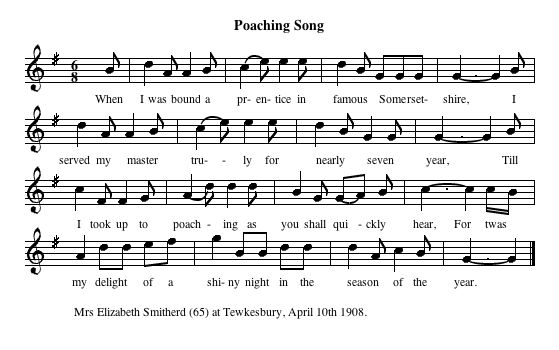
Cecil Sharp collected the following song (more commonly known as The Lincolnshire Poacher) from Elizabeth Smithers on 10 April 1908.[9] It is thought by many to be the finest of her 19 folk songs:
When I was bound apprentice,
In famous Somersetshire,
I served my master truly,
For nearly seven year,
Till I took up to poaching,
As you shall quickly hear.
For ‘twas my delight of a shiny night,
In the season of the year.
| As me and my companions, Were setting of a snare, The gamekeeper was watching us, But for him we did not care, For we can wrestle fight, my boys, Jump over anywhere. For it’s my delight of a shiny night, In the season of the year. As me and my companions, Were setting for a five, In taking of them up again, We caught a hare alive, We popped her in the bag, my boys, And through the woods did steer. For it’s my delight of a shiny night, In the season of the year. | We threw her across our shoulders, And wandered through the town, And called into a neighbour’s house, And sold her for a crown, We sold her for a crown, my boys, But dared not tell you where. For it’s my delight on a shiny night, In the season of the year. So here’s success to poachers, For I do not think it fair, Bad luck to every gamekeeper, That will not sell his deer, Good luck to every landlady, That wants to buy a hare. For it’s my delight on a shiny night, In the season of the year. |
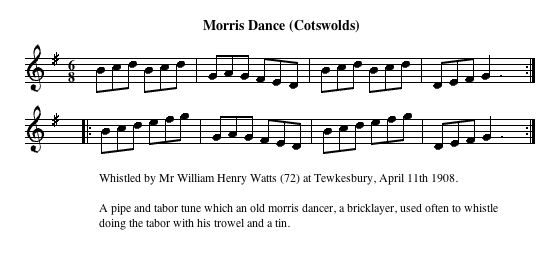
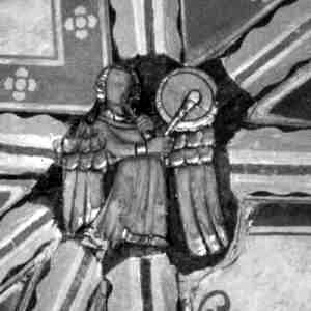
Tewkesbury Abbey
The pipe and tabor was the medieval one-man band. The pipe is a three-holed flute similar to a penny whistle or recorder, whilst the tabor is a small drum with a gut snare across the drumhead. The pipe is played with one hand, normally the left, leaving the right hand free to play the tabor. Also known as the ‘Whittle and Dub’ it has long been played in Gloucestershire to accompany Morris Dancing. Interestingly, we have evidence of the pipe and tabor in Tewkesbury Abbey. The vault in the nave of the church was constructed in about 1340 to replace an earlier wooden ceiling. The 15 bosses of the central rib tell the story of the life of Christ. However, 16 of the bosses on the subsidiary ribs depict angels playing a variety of medieval musical instruments, including the pipe and tabor (see figure 2) located near the west window.[11]
Cecil Sharp’s visits to Tewkesbury in January and April of 1908 have left us with an invaluable record of some of the traditional songs and ballads that were sung in and around the town during the 19th century, with some of them dating back to the previous century or more. However, by the turn of the 20th century these traditional songs were dying out in favour of Music Hall songs and printed sheet music. Elizabeth Smithers provided a total of 19 folk songs including The Poacher, whilst William Henry Watts provided seven songs and one Morris Dance tune. Today the pipe and tabor can once again be heard in Tewkesbury (played by the author) providing the music to accompany the Tewkesbury Mummers on their Boxing Day tour around the town.
Acknowledgements and References
The author is grateful to Sharon Morris of Tewkesbury Borough Council and Phil Mayall at Tewkesbury Cemetery for their help in locating the burial records and graves of Elizabeth Smithers and William Henry Watts, and to the staff of Tewkesbury Library for their help with the local studies collection.- Microsoft Encarta (Editor).
- A. H. Fox Strangways and Maud Karpeles, 1933, Cecil Sharp, Oxford University Press (Reprinted 1980).
- Also spelt Smilhards, Smithard, Smitherd and Smithered.
- Amy Ellen Artus aged 12 (1881 Census) and Joseph E. Artus aged 4 (1901 Census).
- W.H. Watts was the uncle of Samuel T. Osborne (Editor); see Catherine and Derek Round, Samuel Thomas Osborne, Channel Hero in T.H.S. Bulletin, 12 (2003).
- He was Captain of the Tri-cycling Club (Editor from Woodard Database).
- Death of Mr. W H Watts, Tewkesbury Register, Saturday 23rd June 1923, page 3.
- EFDSS Library, Cecil Sharp House, 2 Regents Park Road, London NW1 7AY <www.efdss.org>
- Steve Roud, Eddie Upton and Malcolm Taylor, 2003, Still Growing: English Traditional Songs and Singers from the Cecil Sharp Collection, London: EFDSS, 83.
- Charles Menteith and Paul Burgess, 2006, The Coleford Jig, Gloucestershire, pages ii and 35.
- Richard Morris, 2000, Roof Bosses in the Nave of Tewkesbury Abbey, Friends of Tewkesbury Abbey.
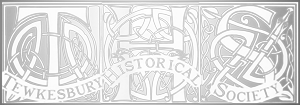
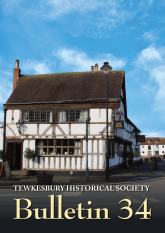
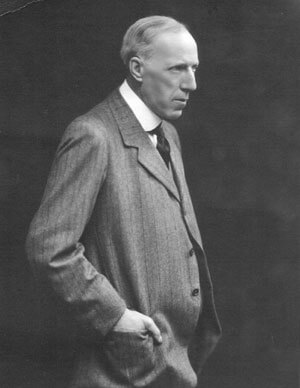
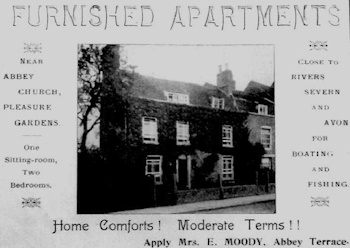
Comments